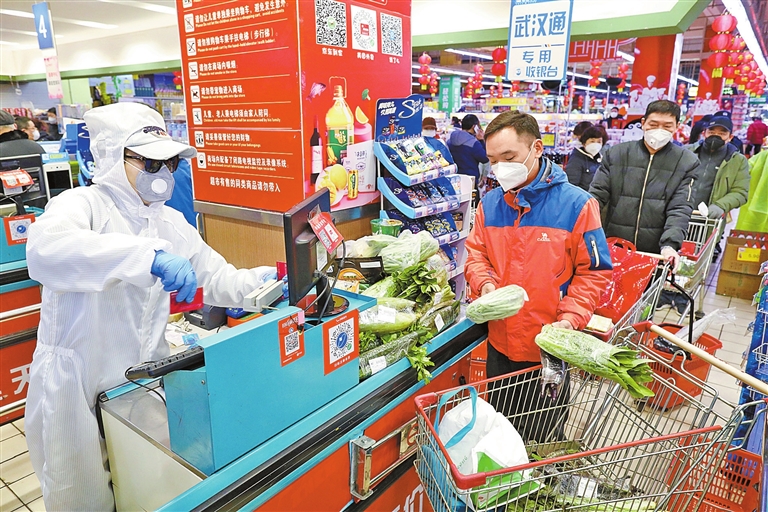
LIKE their counterparts in Silicon Valley, China’s largest tech companies struggled to prove online groceries can be a viable business. Then the novel coronavirus struck. Its spread has extended a lifeline to a slew of money-burning businesses — many backed by big name venture capital funds and tech giants from Alibaba Group Holding Ltd. to Tencent Holdings Ltd. — that in some cases were on the brink of collapse in 2019. Millions of consumers shunning supermarkets and meal delivery services are testing promises by Tencent-backed Missfresh or Alibaba’s nationwide Hema chain to ship fresh food to their doorsteps. Those that deliver can expect many of first-time customers to stay even after the epidemic burns itself out. The boom is one more way in which the abrupt onset of the epidemic is transforming consumer behavior in the world’s No. 2 economy. Usage of other online services, from mobile gaming to Internet malls, is surging as the epidemic confines millions to their homes. “Before the Chinese New Year, many of these firms were looking precarious and their only lifeline was the deep pockets of their big backers,” said Michael Norris, research and strategy manager at Shanghai-based consultancy AgencyChina. “Right now, fresh grocery delivery platforms are seen as an essential for consumers to minimize risk of infection.” Not all of them are equipped to handle the sudden increase in demand. The most immediate obstacles include a shortage of delivery staff, inventory management and the difficulties of navigating physical roadblocks put up by local governments trying to curb the disease’s spread. And if the coronavirus outbreak hurts the economy, many expect that also to squeeze funding overall for all tech startups. The epidemic has led consumers to seek eating options that are healthier than takeout, especially with online chatter about the risks of takeout delivery people transmitting the disease. There’s less of a concern around fresh food since delivery frequency is lower than takeout and many people take comfort in cooking their own meals. Norris sees the outbreak ushering in another boom era for e-commerce in China. Overall, he expects online to account for a third of China’s retail sales in 2020, up from around a quarter last year. Alibaba’s Hema chain, including 18 stores at the epicenter of the outbreak in Wuhan, have operated non-stop during the extended Lunar New Year break. Online orders have spiked, prompting Hema to increase its vegetable supply across Beijing, Shanghai and Guangzhou, the company said in a statement. Missfresh saw a quadrupling in online orders for groceries during the first five days of the Lunar New Year compared with the same time last year. The company sold 40 million food items, including eggs, lettuce and beef, during the seven-day period. And JD.com Inc. said its sales of fresh food increased by 215 percent, reaching almost 15,000 tons during the 10-day period ending Feb. 2, compared with the same period last year. Twenty-one-year-old Ye Xie would ordinarily be back at Fudan University in Shanghai by now, starting her last semester. But because of the epidemic, she’s stuck in her native Zhejiang Province and her family has come to depend on the app Dingdong Buy Vegetables. “Before the outbreak, they would average once a week,” she said. “Now we use it three to four times a week.” It’s an unexpected windfall for grocery delivery services that have perennially struggled with the logistics of transporting perishables like fruit and vegetables and shoppers’ innate preference for testing and selecting the freshest produce on sight. That’s good news for a sector that faces a broader funding squeeze. Last year, a raft of startups raced to replenish their war chests before what many foresaw as a capital winter brought on by a slowing economy. Missfresh was said to be seeking a new round of fundraising last July at a US$3 billion valuation. The company hasn’t announced completion of that financing. (SD-Agencies) | 
